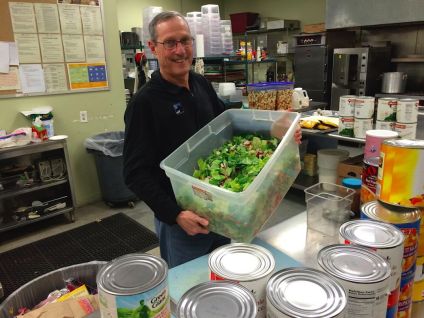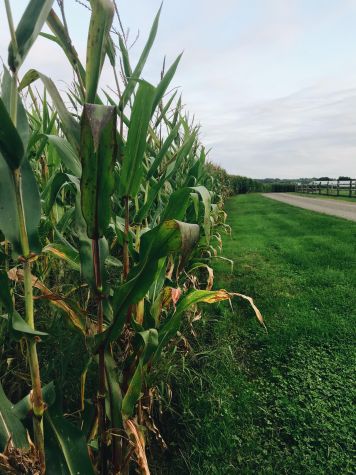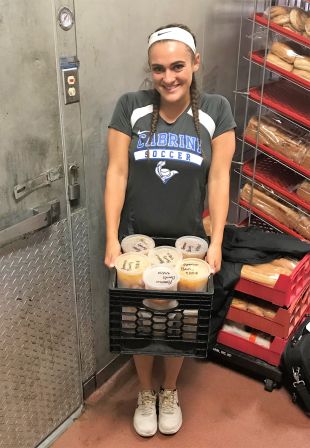
Walking into the vegetable section at a grocery store, we expect to find perfect, polished tomatoes with no blemishes or color discoloration. This mentality that society up holds on perfect fruits and vegetables forces farmers to throw away about half of the food produced. Food is the most wasteful product in Pennsylvania.
Hate to break it to you but, that perfect tomato is not as healthy as the one that is heavy and has a crack down the side with juice coming out. Farmers raise their produce to have three things; color, size and durability. They want produce that can withstand being shipped all over even if that means throwing away perfectly good food.
$218 billion worth of food is thrown away each year. With that 21 percent of freshwater is used for that disposed food. One of the biggest issues in the world is world hunger, yet we have enough food to feed everyone. If we have enough food for everyone then why are people starving?

Cabrini University’s instructor Thomas O’Donnell speaks up about food waste in the PBS39 article titled “Food Waste in the Valley.”
“Food waste is prevalent and present everywhere. The biggest issue to me is that there is more than enough food raised and grown in the United States to provide food to everyone who is food insecure. That statistic is known, but it is also true in the entire world. Sadly, there is all of these people that are in need, both in terms of quantity and quality of food,” O’Donnell said.
A study was done about food stores serving the misfit, or seconds of fruits and vegetable at a discount price, and they sold immediately. People wanted the perfectly good fruits and vegetables that had either a scratch or bruise of some sort because it was a lower price.
“You get people who can’t afford expensive food so end up buying things like hot pockets or low quality cereal and fill up on empty food which isn’t starvation but a food insecurity issue,” O’Donnell said. These people then can buy the discounted fruits and vegetables, saving it from being wasted.
A group of students from Lehigh University competed in a Hack-a-Thon to come up with new ideas to help lower food waste. The judges looked for innovation, viability, and how well these students managed their time with just 48 hours. The group that won the Progress award dealt with college campuses’ cafeterias. They shared ideas about students swiping into the caf with their ID cards and getting food but then knowing how much they wasted when they were done.

Something that Cabrini students can do to help with food waste O’Donnell said is, “Go to your local supermarket and find the assistant manager or the general manager, look for posters that indicate that they have some sort of a program about food waste reduction. Tell that person how happy you are that they’re doing that and please continue doing more of it. The reason is that they respond to customer feedback more than anything else in the whole world, and that statement by you to that store manager will help improve these programs.”
Here at Cabrini we have a few ways to lower food waste that every student may not know about. One way is that we take all the leftover soup and bring it to local pantries. Students and staff have collected more than 4,000 pounds of food for those pantries.
Composting is something most people believe takes too much time and effort to do. If people were shown and taught how to compost, it would be a lot easier for them. Composting allows organic matter to break down naturally and then people can use that for their gardens.
“I personally don’t throw any food away. I started a home composting with a little container by my sink where we put our leftovers and now I actually look forward to putting food in there,” O’Donnell said. “If my produce doesn’t look too great I throw it in soup a lot. I save my apple cores from work and take them back to my compost piles. I do everything I can because I’m uncomfortable wasting it. I would say I’m close to zero food waste now.”
O’Donnell references Johnathan Bloom when he said, “When you learn about food waste you’ll start to see it everywhere.”



